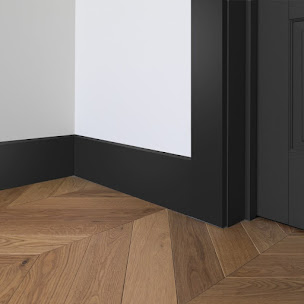Eco-Friendly Cork Rolls: Sustainable Flooring for Modern Spaces
As people become more eco-friendly as homeowners and business owners, there has been a great need for green, sustainable flooring solutions. Amidst all the choices that are around us, however, one of the best is Cork Roll flooring. It is the epitome of durability, comfort, and greening, offering a unique, sustainable solution for those who want to go greener without sacrificing style or functionality.
What is Cork Flooring?
Cork roll flooring is produced from the bark of the cork oak tree, which is mainly cultivated in Mediterranean countries such as Portugal, Spain, and parts of Italy. The bark is removed by hand without damaging the tree to enable it to be utilized many times prior to its felling. This makes cork flooring a very sustainable and renewable product.
What Makes Cork So Special
The eco-friendliness and flexibility of cork make it precious. Cork oak tree bark is harvested so that cork, a great natural product, is extracted. The tree isn't harmed by this process and will keep growing and shedding its bark.
Once harvested, the cork roll is milled, compressed, and molded into sheets or tiles for use on floors. Its strength has been enhanced by means of contemporary manufacturing processes, rendering it a convenient and desirable choice for homes and buildings.
The Environmental Advantages of Cork Flooring
One of the most significant reasons homeowners opt for cork flooring is its environmental advantages. Some of the reasons why cork flooring qualifies as environmentally friendly are listed below:
Biodegradable and Recyclable
Cork flooring is biodegradable and recyclable to 100%. When it reaches the end of life, it can recycle or biodegrade, leaving less landfill waste.
Low-Impact Manufacturing Process
There is minimal waste in manufacturing cork roll for wall. Off cuts of cork manufacturing are usually recycled into other products with cork, like wine stoppers, insulation, and furniture. Less energy is needed in the manufacturing process compared to other flooring.
Improves Indoor Air Quality
Cork flooring also helps prevent mold, mildew, and allergies. It gives off low or zero volatile organic compounds (VOCs), leading to improved indoor air quality and making it a healthier choice for allergy victims and asthma sufferers.
Practical Advantages of Cork Flooring
In addition to its green credentials, cork expansion joint is also bestowed with a variety of practical advantages that make it an attractive home feature.
Low-Impact Manufacturing Process
There is minimal waste in manufacturing Cork Roll For Walls. Off cuts of cork manufacturing are usually recycled into other products with cork, like wine stoppers, insulation, and furniture. Less energy is needed in the manufacturing process compared to other flooring.
Cushioning and Underfoot Comfort
Cork flooring is naturally soft and elastic, so standing and walking on it for extended lengths of time is comfortable. In contrast to tile or hardwood flooring, which can be harsh underfoot, cork possesses a degree of give, minimizing joint and foot tension.
Exceptional Insulation Properties
A natural thermal and acoustic insulation is cork. Roll of cork conserves energy for heating and cooling by maintaining a constant interior temperature. Since cork also absorbs sound, it's a great choice for multi-story homes, workplaces, and flats where noise reduction is essential.
Water and Moisture Resistance
Although cork itself is water-resistant because it is waxy, cork is made even more moisture- and spill-proof with contemporary sealing techniques. Cork flooring can then be used in kitchens, bathrooms, and basements once sealed without the risk of potential water damage.
Longevity and Durability
Cork flooring is also very long-lasting and can endure 20-30 years or more with good maintenance. Its cellular nature lets it compress and spring back, so foot traffic dents and furniture scratches don't show as badly.
Hypoallergenic and Antimicrobial Properties
Cork roll has suberin, a natural compound that keeps insects, bacteria, and allergens at bay. It's an excellent option for individuals who suffer from allergies, asthma, or respiratory sensitivities.
Types of Cork Flooring
There are various types and installation types of cork flooring; hence residents can select the most suitable one for their room.
Cork Tiles
Cork tiles are available in sizes and designs and are flexible with design. They are usually glued down and can be installed in special designs to provide a personalized appearance.
Printed and Stained Cork Flooring
For people who adore the sustainability of cork but desire something that is unique in appearance, there are printed cork floors available in a hardwood, stone, or design simulation. Stained cork flooring is also available, with homeowners selecting from several colors to suit their interior décor.
Cork Planks (Floating Floor)
Cork planks or Roll of Cork for walls are installed on a click-lock system, just like engineered wood or luxury vinyl planks. The installation is fast, easy, and glue and nail-free.




Comments
Post a Comment